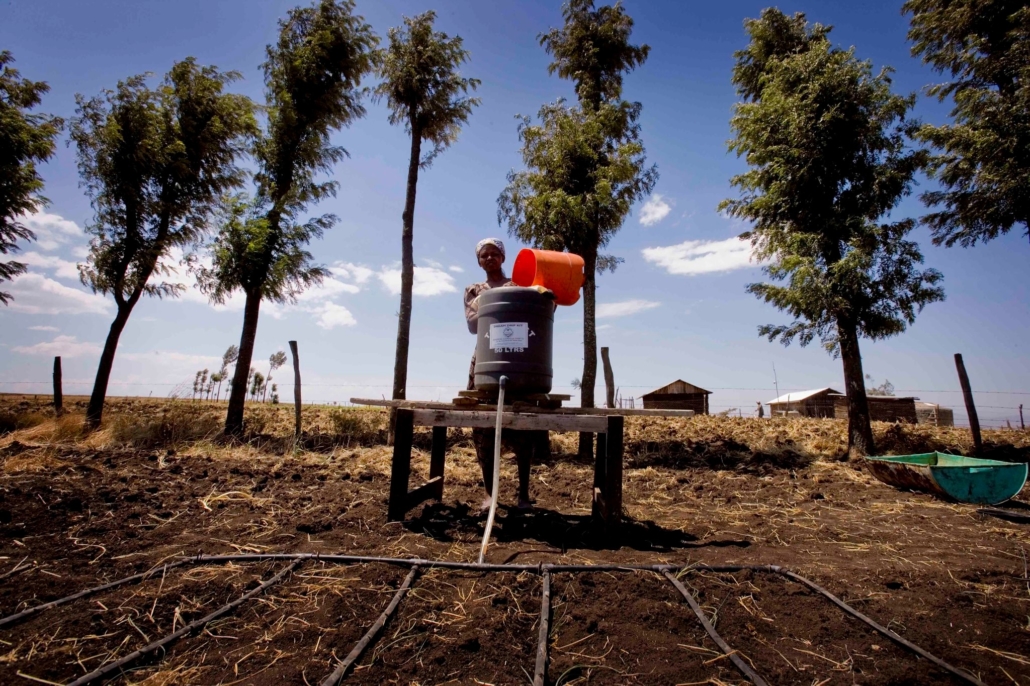4 Mobile Applications Elevating Farmers in Kenya
 African agricultural technology (agri-tech) services bring in $2.6 billion every year. Kenyan agri-tech is a large piece of Africa’s agri-tech industry, accounting for 25% of all startups. Agri-tech companies in Kenya create websites and mobile applications with the hope of elevating farmers in Kenya from poverty by allowing them to showcase their products and access information databases. Mobile applications and virtual marketplace platforms also boost market accessibility for farmers in Kenya.
African agricultural technology (agri-tech) services bring in $2.6 billion every year. Kenyan agri-tech is a large piece of Africa’s agri-tech industry, accounting for 25% of all startups. Agri-tech companies in Kenya create websites and mobile applications with the hope of elevating farmers in Kenya from poverty by allowing them to showcase their products and access information databases. Mobile applications and virtual marketplace platforms also boost market accessibility for farmers in Kenya.
Agriculture in Kenya
More than 25% of the global workforce works in the agriculture sector. In Kenya, agricultural employment accounts for more than 40% of the population. Additionally, agriculture comprises 33% of Kenya’s GDP. Although agriculture is a major economic sector, in Kenya the industry traditionally consists of older and smallholder farmers. Socially, Kenyans see farming as lackluster and dirty. Many young people prefer to turn to education rather than farming but digitalization in the agriculture industry is drawing in younger people.
It is important for younger Kenyans to enter the agricultural industry because their experience with technology will advance the market. What Kenyans saw as an industry for the older generation is transforming into a technologically advanced industry with the help of young adults. Engaging young people through social media and other mobile applications will rejuvenate and modernize agriculture in Kenya. Additionally, because many farmers in Kenya are smallholders, people who own small-scale farming operations, the creation of mobile applications allows farmers to feasibly access new markets via smartphone or computer without relying on brokerages or a middle-man, elevating farmers in Kenya from poverty.
4 Agri-Tech Applications Transforming Agriculture in Kenya
- Mkulima Young: Created by Joseph Macharia, a Kenyan farmer, Mkulima Young’s website connects farmers and potential buyers throughout East Africa. The platform is enhancing trade throughout the region. Using the application, Kenyans can feasibly buy and sell agricultural products. On the platform’s website’s homepage, Mkulima Young features young farmers’ selfies with their products, the latest products its members uploaded to the site and requests from buyers. Another page on the site includes a virtual market that allows farmers in Kenya to showcase and sell their cash crops, flowers, livestock and other agriculture products. Mkulima Young’s virtual marketplace gives users access to data to help understand trend projections and market insights.
- Twiga Foods Ltd: Beginning in 2014, Twiga sources products from Kenyan farmers and food manufacturers for registered vendors to sell, in turn providing adequate market security for farmers and vendors. After sourcing fresh fruits and vegetables from Kenyan farmers, Twiga Foods brings produce to Kenya’s urban centers. Currently, more than 4,000 suppliers and more than 35,000 vendors utilize Twiga’s marketplace platform. Twiga prides itself on transparency and efficient delivery of quality products. The platform offers smallholder farmers reassurance that their products will be profitable. Twiga Foods makes selling and buying Kenyan produce easier for average Kenyan farmers and vendors through its transparency and a guaranteed market.
- DigiCow: Founded by tech start-up Farmingtech Solutions, which specializes in agricultural data management, DigiCow provides smallholder farmers with farming management services. With DigiCow’s services, farmers in Kenya can reach data-based conclusions rather than guessing and estimating results, which was common practice before applications like DigiCow. The application enables its users to make data-driven decisions. Specific tools the application offers are, but are not limited to, virtual training, message boards for farmers to connect with each other, digital tracking of feeding, insemination and milking, notifications for vital dates and analyzed reports. April 2019 marked a notable milestone for DigiCow. The World Bank recognized the Farmingtech Solutions team as Kenya’s most inventive Agri-tech by awarding DigiCow the winner of the Disruptive Agricultural Technologies challenge. With the DigiCow application, farmers can now keep data sets and make educated decisions.
- DigiFarm: Founded by Safaricom, a telecommunication firm in Kenya, DigiFarm allows farmers to connect directly with bulk produce buyers, credit providers and cheaper agronomic materials. DigiFarm arranges deals with buyers for small farmers. These deals are more beneficial than the deals farmers use to make with traditional brokers. More than 40,000 farmers utilize the application. The app allows smallholder farmers to analyze the market of their produce. Additional services DigiFarm provides its users are insurance for weather-related incidents, loss management and recommendations on how to increase yields. Projections estimate that if success continues, DigiFarm will represent 10% of annual ag-business affairs in Kenya. Before DigiFarm’s assistance many farmers could not afford supplies but with DigiFarm’s help, many small farmers can now run successful operations.
How Agri-Tech Alleviates Poverty in Kenya
The World Bank states that an increase in agriculture technology will assist Kenya in meeting its rising food demand, whilst elevating farmers in Kenya from poverty. As smaller farmers utilize more agri-tech, their production will increase leading to a rise in income for themselves and also a rise in food production for the country. Increasing agriculture productivity through agricultural technology will not only increase food supply but will also increase the number of jobs available in both the agriculture and technology sectors.
These agricultural technology applications are a game-changer for smallholder Kenyan farmers. They have the potential to create economic growth in the agriculture and technology industry. The creation of virtual marketplaces and agri-tech platforms will ultimately lead to prosperity in Kenya.
– Bailey Lamb
Photo: Flickr
